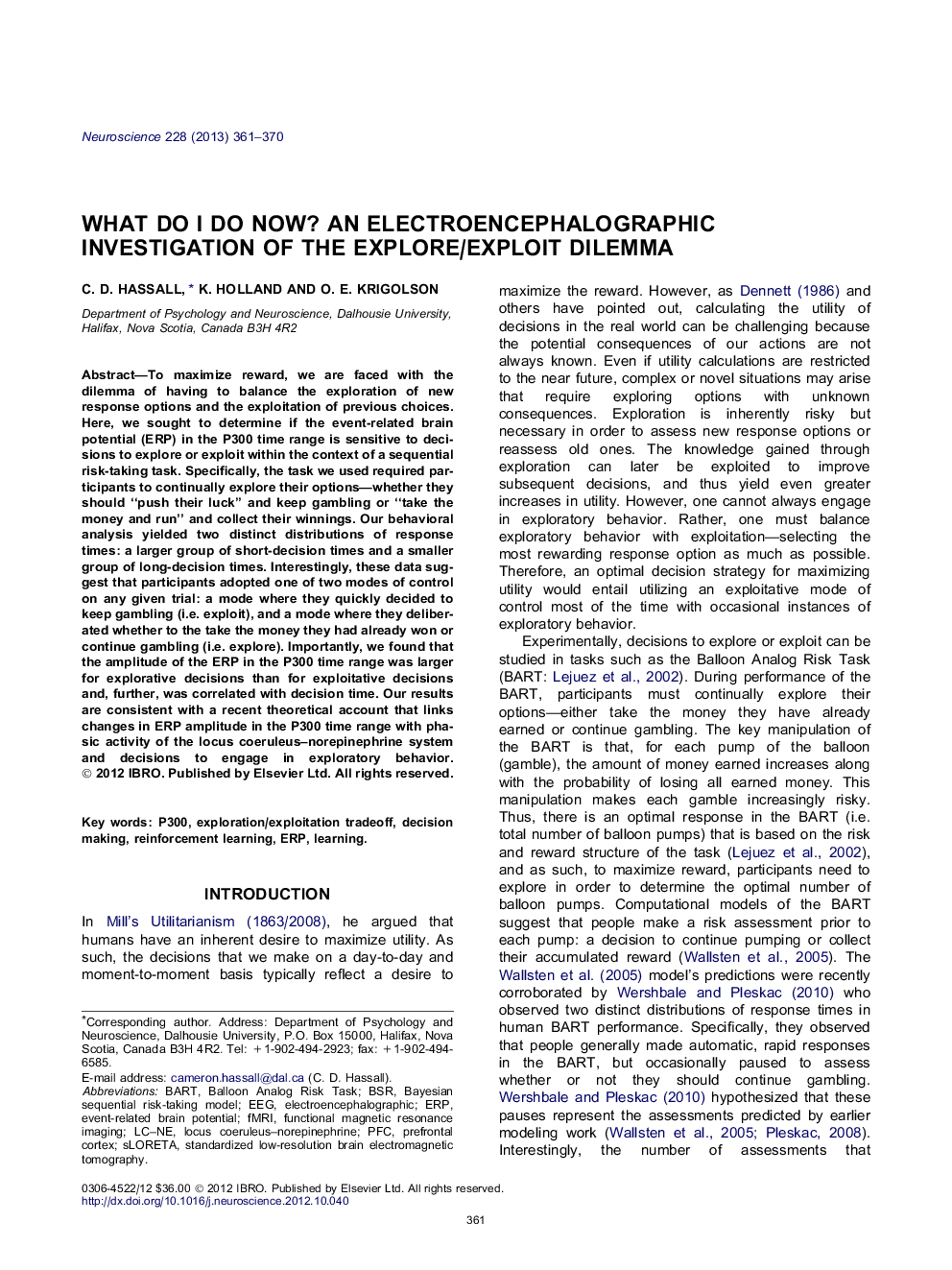| Article ID | Journal | Published Year | Pages | File Type |
|---|---|---|---|---|
| 6275271 | Neuroscience | 2013 | 10 Pages |
To maximize reward, we are faced with the dilemma of having to balance the exploration of new response options and the exploitation of previous choices. Here, we sought to determine if the event-related brain potential (ERP) in the P300 time range is sensitive to decisions to explore or exploit within the context of a sequential risk-taking task. Specifically, the task we used required participants to continually explore their options-whether they should “push their luck” and keep gambling or “take the money and run” and collect their winnings. Our behavioral analysis yielded two distinct distributions of response times: a larger group of short-decision times and a smaller group of long-decision times. Interestingly, these data suggest that participants adopted one of two modes of control on any given trial: a mode where they quickly decided to keep gambling (i.e. exploit), and a mode where they deliberated whether to the take the money they had already won or continue gambling (i.e. explore). Importantly, we found that the amplitude of the ERP in the P300 time range was larger for explorative decisions than for exploitative decisions and, further, was correlated with decision time. Our results are consistent with a recent theoretical account that links changes in ERP amplitude in the P300 time range with phasic activity of the locus coeruleus-norepinephrine system and decisions to engage in exploratory behavior.
⺠We categorized responses in a decision-making task as explorations or exploitations while EEG data were recorded. ⺠We observed an ERP magnitude increase in the P300 time range for explorations. ⺠ERP magnitude in the P300 time range correlated with decision time for both explorations and exploitations. ⺠The P300 in response to feedback scaled to reward magnitude.
